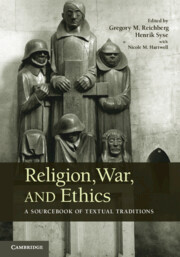Book contents
- Frontmatter
- Contents
- Notes on Contributors
- Preface
- Introduction
- 1 Judaism
- 2 Catholic Christianity
- 3 Eastern Orthodox Christianity
- 4 Protestant Christianity
- 5 Sunni Islam
- 6 Shi‘ite Islam
- 7 Hinduism
- 8 The Buddhist Traditions of South and Southeast Asia
- 9 Chinese and Korean Religious Traditions
- 10 The Religious Traditions of Japan
- 11 Sikh Tradition
- Index
2 - Catholic Christianity
Published online by Cambridge University Press: 05 June 2014
- Frontmatter
- Contents
- Notes on Contributors
- Preface
- Introduction
- 1 Judaism
- 2 Catholic Christianity
- 3 Eastern Orthodox Christianity
- 4 Protestant Christianity
- 5 Sunni Islam
- 6 Shi‘ite Islam
- 7 Hinduism
- 8 The Buddhist Traditions of South and Southeast Asia
- 9 Chinese and Korean Religious Traditions
- 10 The Religious Traditions of Japan
- 11 Sikh Tradition
- Index
Summary
Catholic Christianity has existed institutionally for almost two thousand years. Founded on the life and teaching of Jesus Christ, it is organized as a society of believers (an ecclesia), under the jurisdiction of its bishops, with primacy accorded to the bishop of Rome (the pope), who is viewed as the direct successor of Saint Peter, the apostle whom Jesus designated the first leader of the Church.
Old and New Testaments
The New Testament contains very few statements on permissible violence. Jesus Christ refused to defend himself (nor did he allow himself to be defended) by force of arms. And his precepts admonishing patience in the face of evil seem inimical to warfare and organized fighting of any sort. Yet in its doctrine and practice the Catholic Church has rarely drawn out this implication. To the contrary, its standard teaching is that resort to armed force can have a valid place in human affairs. This teaching was derived from passages of the New Testament (in particular, Romans 13:4 and I Peter 2:13–14) that affirm how God has instituted civil authority to maintain order in human affairs. In fact, the very notion of bellum justum (“just war”) has become common coinage within Western civilization precisely after being adopted by a long line of Church (“canon”) lawyers and theologians.
- Type
- Chapter
- Information
- Religion, War, and EthicsA Sourcebook of Textual Traditions, pp. 76 - 163Publisher: Cambridge University PressPrint publication year: 2014
- 1
- Cited by

